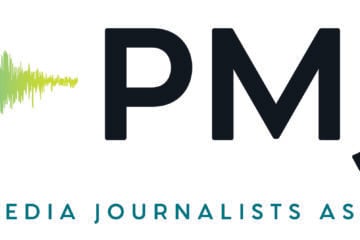MPR to rep its own shows, mainstays of PRI catalog
Minnesota Public Radio will begin distributing many of its own programs this summer, depriving longtime distribution partner Public Radio International of strong offerings with combined audiences equal to 40 percent of its total listener-hours.
MPR, public radio’s second-largest producer of programs behind NPR, will distribute 10 shows, including A Prairie Home Companion, directly to stations starting July 1. Marketplace and its companion Morning Report will follow a year later when their PRI contracts expire. MPR will also distribute its own specials and limited series.
PRI will continue to distribute Classical 24, the 24/7 classical service it produces jointly with MPR.
By cutting out the middleman, MPR expects to form closer ties to its clients and put the cost savings into production. But the arrangement will mean stations will be asked to pay a new affiliation fee — to MPR — when they are already pinched by lagging revenues and rising NPR fees.
The shift will also challenge PRI to shore up its value after some of its signature shows depart. PRI is far from dependent on MPR, having introduced a number of new programs from other partners in recent years. In 1994 it expanded into production with The World. Today, it co-produces Studio 360 with WNYC in New York.
PRI President Steve Salyer said the change would free his company to produce and distribute new programs. He also expressed confidence that the appeal of the network’s non-MPR programs would continue to attract business.
“I think there will be an impact — I don’t want to pretend that there won’t,” he said. “But we also think that this is going to open some new running room for us and give us a chance to continue doing what we think are doing particularly well.”
A Prairie Home Companion alone airs on 571 stations and draws among the highest carriage fees of all PRI shows. Some observers say PRI will have to reduce its affiliation fees.
“They’re in the process of losing their marquee programs,” said John Decker, p.d. of KPBS in San Diego. “So their affiliation fees had better go down.”
More money for MPR
MPR seized its opportunity when its contracts with PRI expired, and the distributor had been bracing for the decision, Salyer said.
“We had done our best to make a competitive offer to continue to distribute MPR’s programs, and we’re sorry that they decided to go in a different direction,” he said.
MPR officials said the decision will allow them to cater more directly to stations’ needs. They also noted the rising importance of newer distribution platforms such as webcasts and on-demand downloads.
“There are new ways of getting content to the audience that don’t rely on a traditional distribution system, so it didn’t make sense to have one form of distribution coming from us and another form coming from a middleman,” said spokeswoman Suzanne Perry.
The new business model puts more of stations’ money directly into MPR’s coffers. Stations buying MPR shows now pay affiliation fees that PRI pockets as well as carriage fees that the distributor passes to MPR almost in full, according to MPR Executive Vice President Tom Kigin.
But when the changes kick in, MPR will charge stations its own affiliation and carriage fees. Costs for MPR shows will rise only slightly in the upcoming fiscal year, said Kohtz and Craig Curtis, MPR’s senior director of research and station relations, in a memo to stations. The network will discount its first-year affiliation fee “significantly,” they said.
MPR will consult with station and industry representatives to set costs for fiscal year 2005. The network has created a new distribution and station relations unit with 19 staffers led by Chris Kohtz, who formerly managed Classical 24.
The “big one” that got away
MPR’s decision marks the latest and perhaps final chapter in a sometimes tense relationship between companies helmed by two of the system’s most entrepreneurial leaders, Salyer and MPR President Bill Kling.
Kling was a founder of PRI as American Public Radio in 1983 as an alternative distributor to NPR. But former executives of the companies say the estrangement began in the early ’90s, when PRI began producing programs, sparking fears of competition at MPR.
Their relationship worsened when PRI passed over MPR to choose WGBH as the partner for The World, its first production, says Ken Mills, formerly PRI’s news director and now a consultant.
“It was really poisonous,” Mills says. “I think that now PRI can move forward without feeling that from one of their prime partners.”
The acrimony peaked in 2000 when PRI filed suit to block MPR’s acquisition of Marketplace from the University of Southern California, citing fears that its “competitive advantage as a programming distributor will be damaged.”
A settlement that year allowed PRI to hold on to Marketplace, but now it has lost that program and more.
Kohtz and Curtis stressed that MPR’s move was “not an effort to damage PRI.” Nor does MPR plan to become a third network. It will distribute only its own programs, they said.
PRI will lose 20 percent of its listener-hours this year, based on spring 2003 audience data, and about as much next year when Marketplace goes.
“The big one in terms of its audience and stature is A Prairie Home Companion,” Salyer said. “And no one in their right mind would not regret losing a program like that from your portfolio. But that said, PRI in the last two decades has developed and diversified its programming quite a lot.”
Salyer couched the challenges PRI faces in upbeat terms. Producers PRI works with have been “pitching ideas like crazy,” he said. “With these programs’ departure, we’re going to be in a position to transfer some of that energy and effort toward other programs and producers.”
Mills predicted that “PRI is going to be a stronger but smaller company.” Its stations relations model, adopted in the late ’90s, bodes well for it, he said. PRI reps once sold shows to stations by category, such as news, music and entertainment. Today each station works with only one representative. The model, similar to NPR’s, eliminates redundant calls and e-mails from PRI.
PRI will also benefit from a strong board and management and a valued programming catalog, said Bruce Theriault, a senior v.p. at the company from 1987 to 2001. “It’ll be an adjustment, but they’re going to be fine,” he said.
As for affiliation fees, Salyer said PRI will study pricing and move toward deciding within a month.
The prospect of paying a third affiliation fee could prompt stations to weigh their options. If programming costs rise any more, “we’re going to have to really seriously rethink the way we’re doing things,” said Ted Eldredge, radio station manager of WLRN in Miami. The station now spends $700,000 yearly on non-local programming, he said.
WLRN might drop PRI programs including The World and This American Life if the distributor maintained or raised current fees, Eldredge said.
“Obviously, NPR is critical,” he said, and with MPR’s slate of shows ranking second in importance, “that would leave whatever is left over for PRI.”






